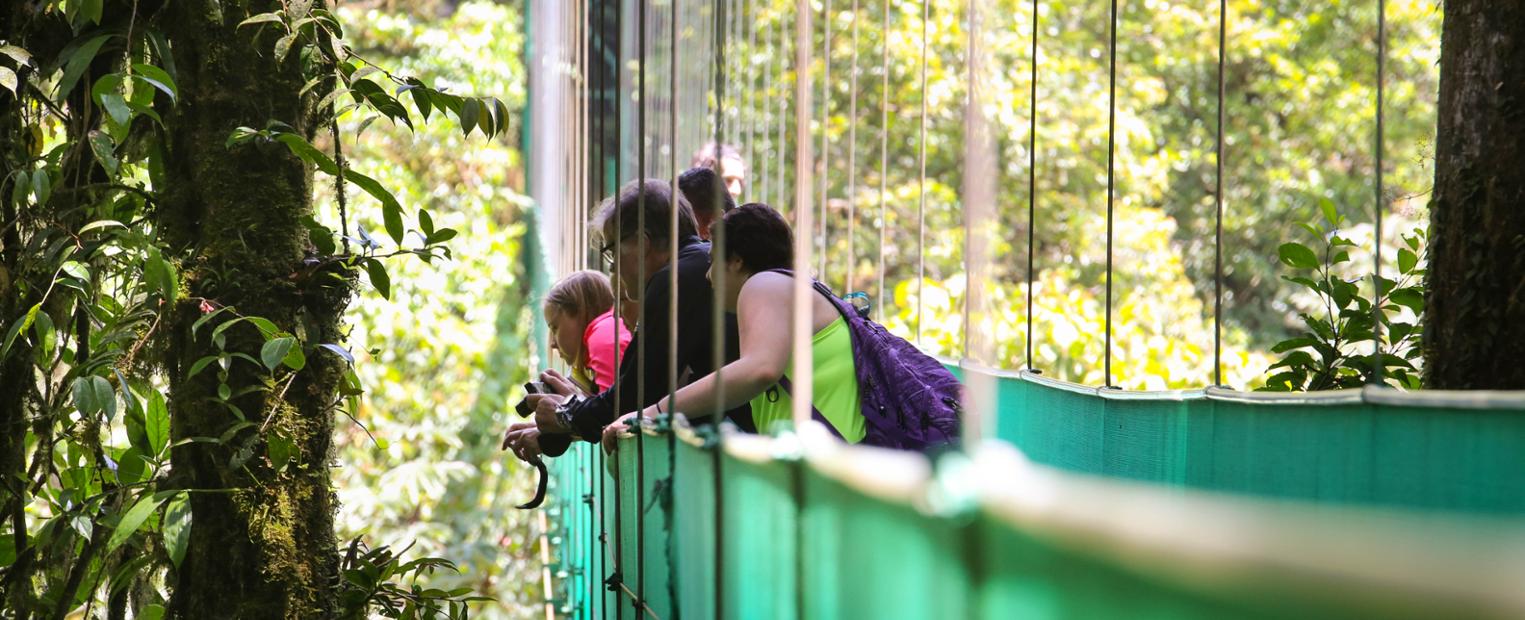When most people think of Costa Rica, they may envision a leisurely vacation by the beach. However, that is not the case for the students who travel there with the Institute for Environmental Studies. While they do get an opportunity to visit a cloud forest and spend time on the beaches, the students spend a significant amount of their time working at a research station evaluating the ecosphere in Costa Rica.
Established in 2002, the study abroad trip is open to all students with an interest in understanding the environment. For two weeks in May, the students visit wind farms, solar farms, and rain forests to study ecology, energy, and geo-hazards in the area. Students work to gain a broad understanding of how the people of Costa Rica are not only trying to protect their fragile ecosystem, but also how they are coping with the impact of the two million tourists in the environment as a whole.
In 2006, when TCU Students were studying in Costa Rica, their guide mentioned that he had a friend with a dream of developing a research center. As part of TCU’s “Vision in Action” initiative, students and faculty are able to propose new academic initiatives for the university. Upon returning from study abroad, the students wrote a grant for the research station in Costa Rica and proposed it to the committee. They were granted the funds, which helped make the dream of having a research center come to fruition. While TCU does not own the station, our students and faculty are the primary visitors.
Completed in 2008, the station is located in a growth forest within Finca Jamaical, a farm owned and operated by Gustavo Orozco, a local naturalist and guide. With a focus on conservationist efforts to preserve water and soil, the students are able to see renewable energy sources in action. About 95 percent of Costa Rica’s electricity comes from renewable sources, and through the research station, students are able to evaluate the successes and challenges that come with the practice. There have also been five graduate theses conducted from the research station, with emphases on everything from soil under primary and secondary forests to mapping the hydrology of stream channels.
While the trip gives students an incredible hands-on experience with a fragile ecosystem, it also offers them something much more meaningful. Mike Slattery, Department of Environmental Sciences chair and Director of the Institute for Environmental Studies, established the trip and emphasizes the overall influence it has on students.
He said, “[On the trip] we are able to look at these environmental variables along the way, but at the end of the day, it’s really about the disconnection. At the station, there’s no WiFi or cell service of any kind. Once the students truly disconnect, they get a better connection with the world around them. There’s something about sitting in a rain forest at 5 A.M. when the only thing you can hear are the sounds of the rain forest.”
This study abroad experience offers students the opportunity to not only gain a greater understanding of the environment, but also learn how to live out the TCU mission statement. Slattery reflected fondly on the ability of the trip to expose students to not only the beauty of the place, but also integrate TCU’s mission statement.
He said, “The whole notion of visiting a special place that allows you to explore philosophical and hard/practical questions of life is the highlight of the trip. We are called to be ethical leaders and responsible global citizens and the students get to learn how make that a reality on this trip. We try to answer the question: how are we going to continue to manage this biosphere when we’ve already had such an impact on it in such a short period of time?”
For the students, Costa Rica serves as a microcosm of the human impact on the environment as a whole. They are able to learn how to better serve the world and sustain an environment which has already been so heavily affected by its inhabitants. Slattery notes climate change and population as two of the biggest threats to the preservation of our planet. The rate at which humans are driving climate change is now unprecedented, scoping to biodiversity, water security, food security and more. Additionally, Slattery says we must discover how to keep our entire system sustainable when there are more than 7.5 billion people currently living on earth – and increasing each day.
While these seem like monumental problems with unreachable solutions, Slattery emphasizes that everyone can do their part in small ways. “Students get to vote with their wallet every single day,” he said. He encourages students and faculty to make smart choices about what they’re buying because it all plays a part in the deterioration of the environment. At the end of the day, Slattery says it all comes down to TCU providing students with the resources to make informed decisions. “If our students are able to leave TCU with a better understanding of the underlying principles that affect our environment, then the university has done its job,” said Slattery.
Read more information about the trip to Costa Rica.
